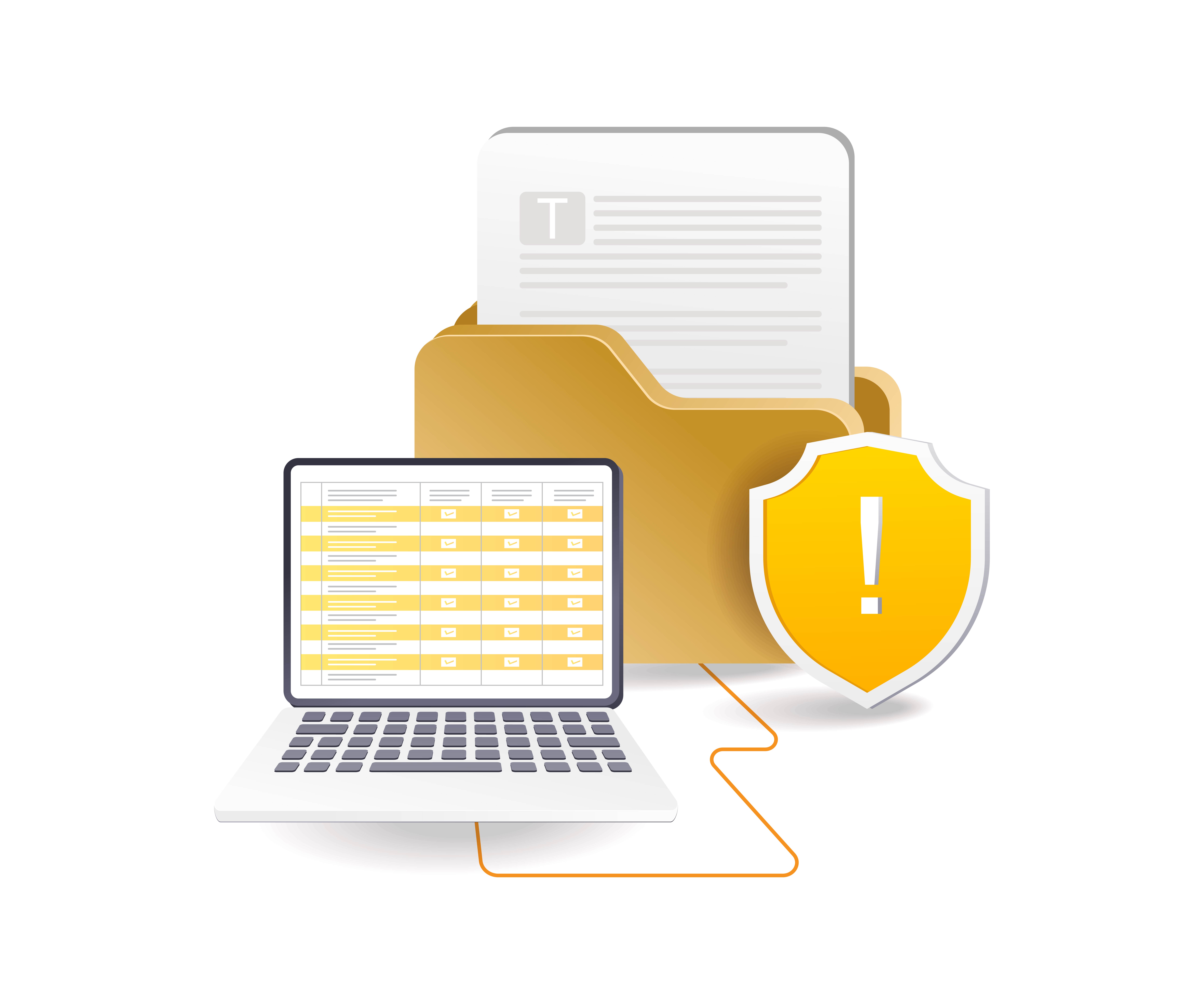
Data is the lifeblood of modern business, offering valuable insights and driving growth. However, navigating the complex world of data privacy regulations and evolving consumer expectations can feel like venturing into uncharted territory. Here’s the good news: a clear roadmap exists. In this blog, we’ll explore the essential steps your business can take to build a future-proof privacy strategy. We’ll discuss staying ahead of the curve on regulations like GDPR, embracing alternative tracking technologies, and fostering a culture of data security throughout your organisation.
Table of Contents
The Importance of Data Privacy in the Digital Age

Data privacy is crucial in the digital age, with the increasing amount of personal data being collected and stored. Understanding data privacy and protection is essential to avoid the potential consequences of ignoring it.
Understanding Data Privacy and Protection
Data privacy and protection are about keeping your personal information safe from those who shouldn’t see it. When you shop online, chat on social media, or even just browse the internet, you share bits of personal info with companies and websites.
They need to handle this data responsibly to guard against theft, leaks, or misuse. Think of it like putting a lock on your front door; you wouldn’t let just anyone wander into your home.
Protecting our digital details involves strong security measures that stop hackers in their tracks. It also means having clear privacy policies, so we know exactly how our data is used.
Companies must follow strict laws like the EU Data Protection Regulation to ensure they’re not taking advantage of our trust. As users, understanding these protections helps us make smarter choices about whom we give our information and what kind of digital footprint we leave behind.
The Evolving Landscape of Data Privacy
As data privacy becomes increasingly complex, staying abreast of the ever-changing landscape is crucial. New laws and regulations, such as the GDPR, bring fresh challenges to organisations striving to future-proof their privacy protections.
Companies are now tasked with managing data securely and transparently, adhering to evolving privacy compliance standards while focusing on consumer trust. The impending shift towards a cookieless future also requires proactive measures in finding alternative tracking technologies for data collection.
It’s essential not only to understand these changes but also to adapt quickly and effectively.
In this dynamic environment, building a solid foundation of compliant data practices and fostering transparency in how personal information is handled will be key components of any successful strategy moving forward.
The Consequences of Ignoring Data Privacy
Ignoring data privacy can have severe consequences in the digital age. Failing to protect personal information from misuse and unauthorised access can lead to identity theft, financial fraud, and reputational damage.
As data handling transparency becomes increasingly important, neglecting privacy measures can result in legal repercussions under emerging privacy laws and regulations, such as GDPR.
With cyber threats on the rise, overlooking data privacy also leaves individuals and organisations vulnerable to security breaches and potential financial losses.
Future-Proofing Your Privacy: Strategies to Consider
In the rapidly changing digital landscape, it is crucial to prepare for a cookieless future and comply with emerging laws and regulations. Building a future-proof privacy strategy will help ensure your data privacy is protected in the long term.
Preparing for a Cookieless Future
With the impending shift towards a post-cookie future, it is vital to prepare for alternative tracking technologies that can collect and generate data. Adapting to this change will help earn consumer trust and ensure sustainable growth in the digital age.
Implementing privacy-focused strategies now positions businesses to navigate the forthcoming challenges effectively.
Focusing on consumer trust and implementing privacy-focused strategies are crucial for future-proof growth in a post-cookie digital age. It involves finding alternative tracking technologies and preparing for a cookieless future, ensuring compliance with data regulations, and adopting a transparent approach to data handling – all essential components of an effective strategy.
Complying With Emerging Laws and Regulations
Complying with emerging laws and regulations is crucial to ensure data privacy in the digital age. Here are some strategies to consider:
- Stay informed about the latest privacy regulations, such as GDPR, which require organisations to protect personal data and establish transparent data handling practices.
- Regularly review and update your privacy programme to align with new laws and regulations, ensuring that your organisation remains compliant and up-to-date with evolving standards.
- Invest in cybersecurity measures to protect personal and sensitive information from emerging security threats, thereby safeguarding against potential breaches and unauthorised access.
- Implement privacy-focused strategies to earn consumer trust, enabling sustainable growth in a post-cookie digital age while respecting individual privacy rights.
- Train employees on the importance of data protection, emphasising the significance of adhering to privacy regulations and maintaining secure data handling practices.
- Develop clear policies for information security and personal data protection within your organisation, outlining guidelines for securely managing and processing sensitive information.
- Establish transparent approaches to data handling by clearly communicating how personal information is collected, used, stored, and protected to build trust among consumers.
- Create a culture of compliance within your organisation, fostering an environment where everyone understands their role in upholding privacy regulations to future-proof data protection efforts.
- Engage with legal experts or consultants who specialise in data privacy laws to ensure that your organisation’s approach aligns with emerging regulations and best practices.
- Regularly conduct assessments of your privacy programme’s effectiveness, addressing any gaps or areas for improvement as new laws and regulations emerge.
Building a Future-Proof Privacy Strategy
Developing a future-proof privacy strategy involves preparing for a cookieless future and adopting alternative tracking technologies. To ensure compliance with emerging regulations like the GDPR, it’s crucial to focus on consumer trust and implement privacy-focused strategies.
This approach not only safeguards personal information but also sets the groundwork for sustainable growth in a post-cookie digital age. It is essential to establish transparent data handling processes, emphasising security measures to protect sensitive information from evolving security threats while overcoming organisational restraints.
Implementing automated measurement strategies enhances digital maturity levels and enables constant adaptation to changes in data privacy requirements. Organisations should prioritise building compliant data foundations that respect internet privacy, ensuring transparency in data handling practices.
Essential Elements of a Future-Proof Privacy Strategy
Compliant data foundations, ensuring privacy and trust, overcoming organisational restraints, and understanding the impact on your business are all crucial elements of a future-proof privacy strategy.
Read more to learn about implementing these strategies for long-term data protection in the digital age.
Compliant Data Foundations
Establishing compliant data foundations is a critical element in future-proofing your privacy strategy. By ensuring that your data handling practices align with existing and emerging regulations such as the GDPR, you can build a strong foundation for safeguarding personal information.
This involves implementing robust security measures to protect sensitive data from potential breaches, thereby earning the trust of consumers and securing their valuable personal information.
Implementing compliant data foundations also entails prioritising transparency in the way organisations handle and process data. By adopting transparent approaches to collecting, storing, and using consumer information, businesses can demonstrate their commitment to respecting privacy rights while fostering trust with their audience.
Ensuring Privacy and Trust
To ensure privacy and trust in the digital age, organisations must focus on establishing compliant data foundations and transparent data handling practices. This involves prioritising consumer trust by implementing privacy-focused strategies that align with emerging regulations such as the GDPR.
By adapting to a post-cookie future and leveraging alternative tracking technologies, businesses can foster transparency and earn consumer trust while safeguarding personal information from unauthorised access.
Building a future-proof plan for data privacy requires a proactive approach towards security strategies, especially in workplaces. With the growing complexity of data regulations, it is essential to manage and future-proof privacy protections effectively.
Overcoming Organisational Restraints
To future-proof privacy, organisations must overcome internal barriers that hinder the implementation of robust data protection measures. Establishing compliant data foundations and fostering a culture of privacy and trust within the organisation are essential steps.
By prioritising consumer trust and implementing privacy-centred strategies, businesses can pave the way for sustainable growth in a post-cookie digital age. Overcoming organisational restraints also involves adapting to evolving data regulations and effectively managing complex data landscapes to ensure future-proof privacy protections.
Understanding the impact on business is crucial for organisations seeking to overcome organisational restraints. Adapting proactively to changes in tracking technologies and ensuring compliance with emerging laws and regulations will be instrumental in building a future-proof plan for data privacy.
Understanding the Impact on Your Business
Future-proofing your business against data privacy risks is crucial in today’s digital age. Complying with emerging laws and regulations, such as the GDPR, not only protects sensitive information but also builds consumer trust.
Implementing a future-proof privacy plan ensures sustainable growth for your business by adapting to a cookieless future and embracing alternative tracking technologies that prioritise privacy-safe measurement strategies.
Compliant data foundations are vital for securing workplaces and personal information from evolving security threats. Overcoming organisational restraints by focusing on consumer trust is key to future-proofing your privacy strategy.
Implementing a Future-Proof Privacy Plan
In order to implement a future-proof privacy plan, it’s important to assess your digital maturity level and automate privacy-safe measurement strategies. Constantly adapting to change is also essential in maintaining data privacy in the digital age.
Digital Maturity Level: Apprentice/Accelerator
At the digital maturity level of an “Apprentice/Accelerator,” it’s essential to focus on building a strong foundation for data privacy and protection. Take steps to understand the impact of emerging laws and regulations, such as the GDPR (General Data Protection Regulation), and ensure compliance with these evolving standards.
Prioritise strategies that emphasise transparency in data handling to build consumer trust while preparing for a future without traditional tracking technologies like cookies. As an apprentice or accelerator, I know that automation of privacy-safe measurement strategies will be vital, along with constantly adapting to changes in data privacy regulations.
Understanding and implementing these key elements will be crucial in future-proofing your organisation’s approach to data privacy against emerging security threats and complexities surrounding data regulations.
Automating Privacy-Safe Measurement Strategies

In the digital age, automating privacy-safe measurement strategies has become crucial for businesses and organisations to protect personal data. Implementing automated systems that prioritise privacy is essential in earning consumer trust and complying with emerging laws like GDPR.
By embracing technologies that ensure privacy at every stage of data collection and analysis, companies can future-proof their privacy strategies while adapting to a post-cookie digital landscape.
These advanced measurement strategies also enable organisations to stay proactive in safeguarding sensitive information against evolving security threats, ultimately fostering sustainable growth.
Constantly Adapting to Change
As you embrace the practice of automating privacy-safe measurement strategies, it’s crucial to recognise the need to constantly adapt to change in the digital age. With the evolving landscape of data privacy and emerging laws such as GDPR (General Data Protection Regulation), staying abreast of new developments is essential.
Implementing a future-proof privacy plan demands an agile approach, ensuring that your strategies remain effective amidst shifting regulations and technological advancements. By staying proactive and flexible, businesses can navigate the complexities surrounding data privacy and continue to uphold trust with consumers in an ever-changing digital environment.
Conclusion
Respecting data privacy is crucial for ensuring sustainable growth in the digital age. Implementing a future-proof privacy strategy involves complying with emerging laws and regulations.
Building consumer trust through transparent data handling is essential for long-term success. Constantly adapting to change and focusing on security measures are key elements of a future-proof plan for data privacy.
Embracing the shift towards a cookieless future and prioritising privacy-focused strategies will be vital for businesses to thrive in the post-cookie digital age.
